Hippocrates(ca.460BC-ca.370BC)希臘醫聖希波克拉底
12世紀拜占庭希波克拉底誓言(Byzantine manuscript of the Hippocratic oath)以十字架樣呈現.
以下文獻轉載自Wikipedia:
Hippocratic Oath (Modern version)
A widely used modern version of the traditional oath was penned in 1964 by Dr. Louis Lasagna, former Principal of the Sackler School of Graduate Biomedical Sciences and Academic Dean of the School of Medicine at Tufts University:[8]
I swear to fulfill, to the best of my ability and judgment, this covenant:
I will respect the hard-won scientific gains of those physicians in whose steps I walk, and gladly share such knowledge as is mine with those who are to follow.
I will apply, for the benefit of the sick, all measures [that] are required, avoiding those twin traps of overtreatment and therapeutic nihilism.
I will remember that there is art to medicine as well as science, and that warmth, sympathy, and understanding may outweigh the surgeon's knife or the chemist's drug.
I will not be ashamed to say "I know not", nor will I fail to call in my colleagues when the skills of another are needed for a patient's recovery.
I will respect the privacy of my patients, for their problems are not disclosed to me that the world may know. Most especially must I tread with care in matters of life and death. If it is given to me to save a life, all thanks. But it may also be within my power to take a life; this awesome responsibility must be faced with great humbleness and awareness of my own frailty. Above all, I must not play at God.
I will remember that I do not treat a fever chart, a cancerous growth, but a sick human being, whose illness may affect the person's family and economic stability. My responsibility includes these related problems, if I am to care adequately for the sick.
I will prevent disease whenever I can, for prevention is preferable to cure.
I will remember that I remain a member of society with special obligations to all my fellow human beings, those sound of mind and body as well as the infirm.
If I do not violate this oath, may I enjoy life and art, respected while I live and remembered with affection thereafter. May I always act so as to preserve the finest traditions of my calling and may I long experience the joy of healing those who seek my help.
The original Declaration of Geneva reads: (1948) / Physician's Oath
At the time of being admitted as a Member of the medical profession:
• I solemnly pledge to consecrate my life to the service of humanity
• I will give to my teachers the respect and gratitude which is their due;
• I will practice my profession with conscience and dignity;
• The health and life of my patient will be my first consideration;
• I will respect the secrets which are confided in me;
• I will maintain by all means in my power, the honor and the noble traditions of the medical profession;
• My colleagues will be my brothers;
• I will not permit considerations of religion, nationality, race, party politics or social standing to intervene between my duty and my patient;
• I will maintain the utmost respect for human life, from the time of its conception, even under threat, I will not use my medical knowledge contrary to the laws of humanity;
• I make these promises solemnly, freely and upon my honor.
Physician's Oath (2002)
At the time of being admitted as a member of the medical profession:
• I solemnly pledge myself to consecrate my life to the service of humanity;
• I will give to my teachers the respect and gratitude which is their due;
• I will practice my profession with conscience and dignity; the health of my patient will be my first consideration;
• I will maintain by all the means in my power, the honor and the noble traditions of the medical profession; my colleagues will be my brothers;
• I will not permit considerations of religion, nationality, race, party politics or social standing to intervene between my duty and my patient;
• I will maintain the utmost respect for human life from the time of conception, even under threat, I will not use my medical knowledge contrary to the laws of humanity;
• I make these promises solemnly, freely and upon my honor.
Citation:
• Declaration of Geneva (1948). Adopted by the General Assembly of World Medical Association at Geneva Switzerland, September 1948.
(Revised 06 June 2002)
希波克拉提斯宣言(The Hippocratic Oath)
希波克拉提斯(Hippocrates,B.C.460 - 377,享年 93歲 )出生於寇斯島(Kos)。希波克拉提斯直接傳承了愛斯科勒皮歐斯對病患盡心盡力救助的仁愛胸懷(古希臘 神話的名醫,Asklepios, 由於救人無數致使人間擁擠、冥界空盪,因而遭受處死之罰),但又自創個人的思想體系。愛斯科勒皮歐斯對希波克拉提斯的影響相當大,希波克拉提斯特別強調「不可傷人乃為醫師之天職」,這個理 念也成為醫學倫理觀最主要的中心思想。
I SWEAR by Apollo the physician, and Aesculapius, and Health, and All-heal, and all the gods and goddesses, that, according to my ability and judgment, I will keep this Oath and this stipulation to reckon him who taught me this Art equally dear to me as my parents, to share my substance with him, and relieve his necessities if required; to look upon his offspring in the same footing as my own brothers, and to teach them this art, if they shall wish to learn it, without fee or stipulation; and that by precept, lecture, and every other mode of instruction, I will impart a knowledge of the Art to my own sons, and those of my teachers, and to disciples bound by a stipulation and oath according to the law of medicine, but to none others. I will follow that system of regimen which, according to my ability and judgment, I consider for the benefit of my patients, and abstain from whatever is deleterious and mischievous. I will give no deadly medicine to any one if asked, nor suggest any such counsel; and in like manner I will not give to a woman a pessary to produce abortion. With purity and with holiness I will pass my life and practice my Art. I will not cut persons laboring under the stone, but will leave this to be done by men who are practitioners of this work. Into whatever houses I enter, I will go into them for the benefit of the sick, and will abstain from every voluntary act of mischief and corruption; and, further from the seduction of females or males, of freemen and slaves. Whatever, in connection with my professional practice or not, in connection with it, I see or hear, in the life of men, which ought not to be spoken of abroad, I will not divulge, as reckoning that all such should be kept secret. While I continue to keep this Oath unviolated, may it be granted to me to enjoy life and the practice of the art, respected by all men, in all times! But should I trespass and violate this Oath, may the reverse be my lot!
Source:
Hippocrates, Works trans., Francis Adams (New York; Loeb) vol. I, 299-301.
古希臘的醫學倫理觀
The Declaration of Geneva
Adopted by the General Assembly of the World Medical Association at Geneva in 1948 and amended by the 22d World Medical Assembly at Sydney in 1968, the Declaration Of Geneva was one of the first and most important actions of the Association. It is a declaration of physicians' dedication to the humanitarian goals of medicine, a declaration that was especially important in view of the medical crimes which had just been committed in Nazi Germany. The Declaration of Geneva was intended to update the Oath of Hippocrates, which was no longer suited to modern conditions.
At the time of being admitted as a
member of the Medical Profession:
I solemnly pledge myself to consecrate
my life to the service of humanity;
I will give to my teachers the respect
and gratitude which is their due;
I will practise my profession with
conscience and dignity;
The health of my patient will be my
first consideration;
I will respect the secrets which are
confided in me, even after the patient has died;
I will maintain by all the means in my power,
the honour and the noble traditions of the
medical profession;
My colleagues will be my brothers;
I will not permit consideration of religion,
nationality, race, party; politics or social
standing to intervene between my duty and my patient;
I will maintain the utmost respect for human life
from its beginning even under threat and I will not
use my medical knowledge contrary to the laws of humanity;
I will make these promises solemnly,
freely and upon my honour.
Daily Prayer of a Physician
("Prayer of Maimonides" attributed to Moses Maimonides, a twelfth-century Jewish physician in Egypt, but probably written by Marcus Herz, a German physician. First appeared in print in 1793. Translated by Harry Friedenwald in the Bulletin of the Johns Hopkins Hospital, 1917)
Almighty God, Thou has created the human body with infinite wisdom. Ten thousand times ten thousand organs hast Thou combined in it that act unceasingly and harmoniously to preserve the whole in all its beauty the body which is the envelope of the immortal soul. They are ever acting in perfect order, agreement and accord. Yet, when the frailty of matter or the unbridling of passions deranges this order or interrupts this accord, then forces clash and the body crumbles into the primal dust from which it came.
Thou sendest to man diseases as beneficient messengers to foretell approaching danger and to urge him to avert it. Thou hast blest Thine earth, Thy rivers and Thy mountains with healing substances; they enable Thy creatures to alleviate their sufferings and to heal their illnesses. Thou hast endowed man with the wisdom to relieve the suffering of his brother, to recognize his disorders, to extract the healing substances, to discover their powers and to prepare and to apply them to suit every ill.
In Thine Eternal Providence Thou hast chosen me to watch over the life and health of Thy creatures. I am now about to apply myself to the duties of my profession. Support me, Almighty God, in these great labors that they may benefit mankind, for without Thy help not even the least thing will succeed. Inspire me with love for my art and for Thy creatures. Do not allow thirst for profit, ambition for renown and admiration, to interfere with my profession, for these are the enemies of truth and of love for mankind and they can lead astray in the great task of attending to the welfare of Thy creatures.
Preserve the strength of my body and of my soul that they ever be ready to cheerfully help and support rich and poor, good and bad, enemy as well as friend. In the sufferer let me see only the human being. Illumine my mind that it recognize what presents itself and that it may comprehend what is absent or hidden. Let it not fail to see what is visible, but do not permit it to arrogate itself the power to see what cannot be seen, for delicate and indefinite are the bounds of the great art of caring for the lives and health of Thy creatures. Let me never be absent-minded. May no strange thoughts divert my attention at the bedside of the sick, or disturb my mind in its silent labors, for great and sacred are the thoughtful deliberations required to preserve the lives and health of Thy creatures
Grant that my patients have confidence in me and my art and follow my directions and counsel. Remove from their midst all charlatans and the whole host of officious relatives and know-all nurses, cruel people who arrogantly frustrate the wisest purposes of our art and often lead Thy creatures to their death.
Should those who are wiser than I wish to improve and instruct me, let my soul gratefully follow their guidance; for vast is the extent of our art. Should conceited fools, however, censure me, then let love for my profession steel me against them, so that I remain steadfast without regard for age, for reputation, or for honor, because surrender would bring Thy creatures sickness and death.
Imbue my soul with gentleness and calmness when older colleagues, proud of their age, wish to displace me or scorn me or disdainfully teach me. May even this be of advantage to me, for they know many things of which I am ignorant, but let not their arrogance give me pain. For they are old and old age is not master of the passions. I also hope to attain old age upon this earth, before Thee, Almighty God!
Let me be contented in everything except in the great science of my profession. Never allow the thought to arise in me that I have attained to sufficient knowledge, but vouchsafe to me the strength, the leisure and the ambition ever to extend my knowledge. For art is great, but the mind of man is ever expanding.
Almighty God! Thou hast chosen me in Thy mercy to watch over the life and death of Thy creatures. I now apply myself to my profession. Support me in this greaty task so that it may benefit mankind, for without Thy help not even the least thing will succeed.
以下是台大醫學院院長魏火曜根據1948年版的翻譯:
Declaration of Geneva 醫師誓言
• 准許我進入醫業時:
• 我鄭重地保證自己要奉獻一切為人類服務。
• 我將要給我的師長應有的崇敬及感戴;
• 我將要憑我的良心和尊嚴從事醫業;
• 病人的健康應為我的首要的顧念;
• 我將要尊重所寄託於我的秘密;
• 我將要盡我的力量維護醫業的榮譽和高尚的傳統;
• 我的同業應視為我的同胞;
• 我將不容許有任何宗教、國籍、種族、政見或地位的考慮介乎我的職責和病人之間;
• 我將要最高地維護人的生命、自從受胎時起;即使在威脅之下,我將不運用我的醫業知識去違反人道。
• 我鄭重地、自主地並且以我的人格宣示以上的約言。
• Adopted by the General Assembly of the World Medical Association at Geneva, Switzerland, September 1948• 台大醫學院魏火曜院長翻譯
下面是Hitachi於2011.5.28在<醫聲論壇>發表的醫師誓言新譯版,但願不會成真。值得醫界、法界及社會各界深思!








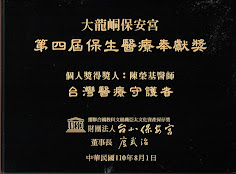

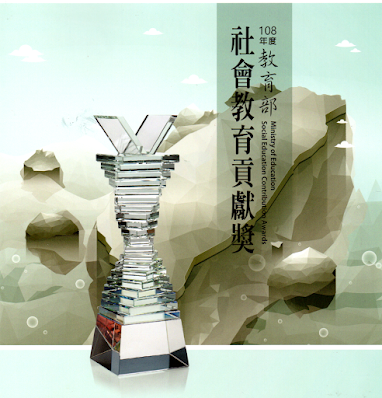

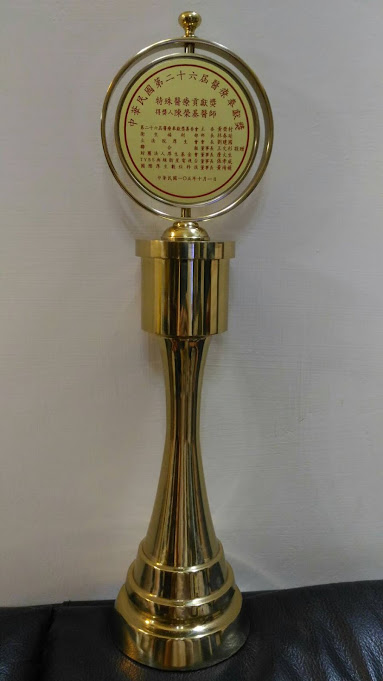
![2015周大觀基金會熱愛生命獎章<[請點下圖連署支持全責護理]>](http://3.bp.blogspot.com/-0XE7vtBmB6Y/VijWC6eVOtI/AAAAAAAAN84/lZpfif8QS5k/s1600-r/Fcover_final.jpg)

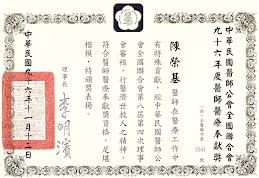

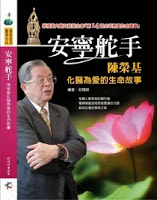

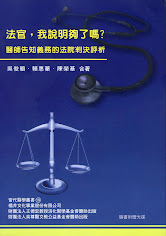
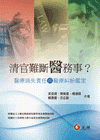
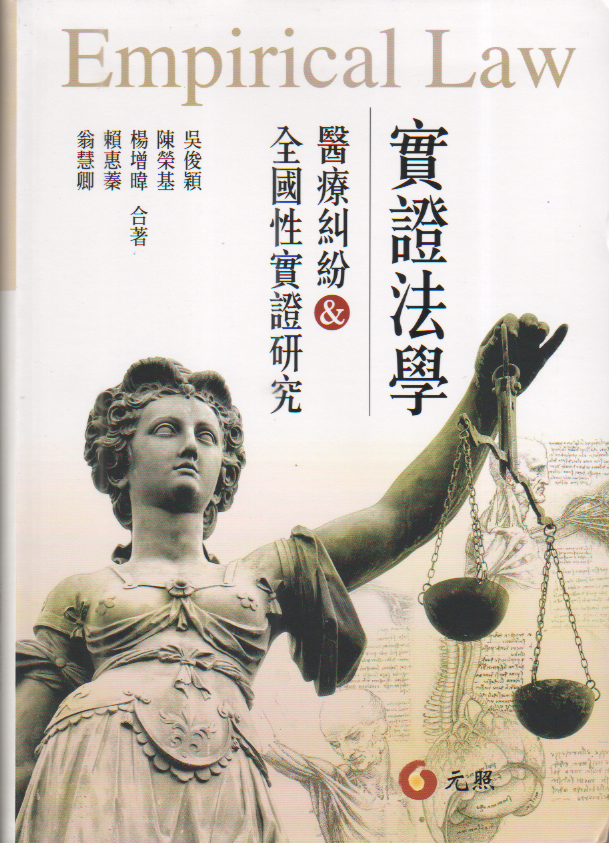
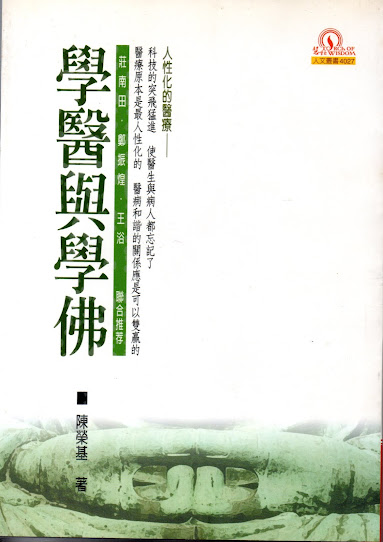
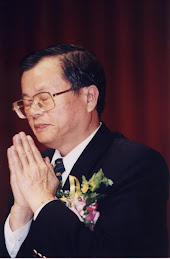
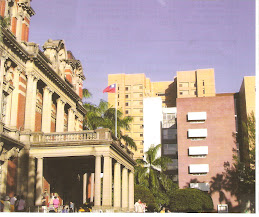
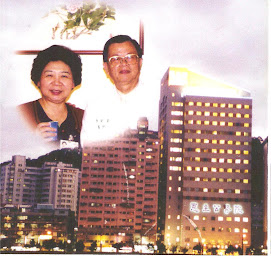
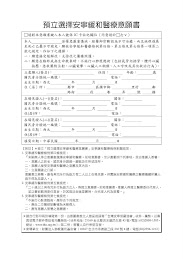


沒有留言 :
張貼留言